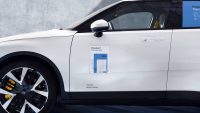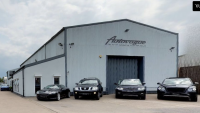THE UK new car market grew 10.4 per cent in April, with 167,911 new units registered, according to figures released today by the Society of Motor Manufacturers and Traders (SMMT).
Demand was affected by a number of factors, including the timing of Easter, which meant two additional selling days this April, and March’s adverse weather, which pushed some deliveries into the fourth month of the year.
Most significant, however, were the VED changes that came into force last April, causing a pull forward into March 2017 and a subsequent depressed April market.
April figures this year paint a mixed picture, with private demand growing 26.3 per cent, while the fleet market remained stable at 0.9 per cent.
However, business registrations saw a significant decline, falling 12.9 per cent compared with the same month last year. Demand for supermini and dual-purpose cars saw the most significant growth of all segments, up 27.0 per cent and 26.8 per cent respectively.
Demand for petrol cars grew in April, up 38.5 per cent, while diesel registrations continued the recent trend, declining by 24.9 per cent.
Meanwhile, registrations of plug-in and hybrid electric cars continued to rise, up 49.3 per cent, thanks to manufacturer investment in a growing choice of models.
While the growth is welcome, these alternatively fuelled vehicles still account for just 5.6 per cent of the market.
Despite the significant rise in the month, the overall new car market remains down year to date, with new registrations in the first four months falling 8.8 per cent, year on year, to 886,400 units.
While this level of decline is expected to slow over the course of 2018, political and economic uncertainty will continue to affect the market and further instability could cause additional disruption.
Mike Hawes, SMMT chief executive, pictured, said: ‘It’s important not to look at one month in isolation and, given the major disruption to last April’s market caused by sweeping VED changes, this increase is not unexpected.
‘While the continuing growth in demand for plug-in and hybrid cars is positive news, the market share of these vehicles remains low and will do little to offset damaging declines elsewhere.
‘Consumers need certainty about future policies towards different fuel types, including diesel, and a compelling package of incentives to deliver long-term confidence in the newest technologies.’
MORE: CDX 2018 to host 19 outstanding panels on the Live Stage
MORE: Open house set for potential Subaru dealers
MORE: Dragon2000 ‘delighted’ to partner with Paymentsense
On WorkshopMagazine.co.uk: IMI calls for re laws to protect mechanics working on EVs



































